When thinking about fitness, nutrition plays a pivotal role in achieving peak performance and overall well-being. While traditional diets have long dominated the fitness scene, a growing number of athletes and fitness enthusiasts are turning to veganism. This plant-based lifestyle not only aligns with ethical and environmental values but also offers a myriad of health benefits that can enhance athletic performance. In this article, we’ll dive into the transformative power of veganism for fitness enthusiasts, debunk common myths, and provide practical tips to help you thrive on a plant-based diet.
The Benefits of a Vegan Diet for Fitness
Enhanced Recovery Time
One of the standout benefits of a vegan diet is its potential to enhance recovery time. Plant-based foods are rich in antioxidants and anti-inflammatory compounds, which can help reduce muscle soreness and speed up recovery after intense workouts. For instance, berries, leafy greens, and nuts are packed with vitamins and minerals that support muscle repair and overall recovery. By incorporating these nutrient-dense foods into your diet, you can bounce back quicker and train harder.
Improved Cardiovascular Health
Cardiovascular health is crucial for any athlete, and a vegan diet can significantly contribute to a healthier heart. Vegan diets are typically lower in saturated fats, which can help reduce cholesterol levels and improve heart health. Additionally, a diet rich in fruits and vegetables can enhance blood flow, providing muscles with more oxygen and nutrients during exercise. This improved circulation can lead to better endurance and overall performance.
Sustained Energy Levels
Maintaining consistent energy levels is essential for peak performance. Vegan diets, which emphasize complex carbohydrates from whole grains, legumes, and vegetables, provide a steady release of energy. This helps athletes maintain endurance during long workouts and prevents energy crashes. Moreover, plant-based diets can help stabilize blood sugar levels, ensuring sustained performance throughout the day.
Optimal Weight Management
For many fitness enthusiasts, managing weight is a key goal. Vegan diets are often lower in calories but higher in nutrients, making it easier to manage weight without feeling deprived. High-fiber foods like beans, lentils, and whole grains can help you feel fuller for longer, reducing the temptation to overeat. This combination of nutrient density and satiety can support healthy weight management and body composition.
Debunking Common Myths
Protein Deficiency
One of the most pervasive myths about veganism is that it lacks sufficient protein. However, there are abundant plant-based protein sources such as tofu, tempeh, lentils, chickpeas, and quinoa. These foods not only provide ample protein but also come with additional health benefits like fiber and essential nutrients. By combining different plant foods, you can ensure a complete protein intake that meets your body’s needs.
Lack of Strength and Muscle Mass
Another common misconception is that a vegan diet cannot support muscle growth and strength. Many elite athletes thrive on a vegan diet, including bodybuilders, endurance runners, and professional football players. With proper planning, a vegan diet can support muscle growth and strength training just as effectively as an omnivorous diet. The key is to focus on high-quality protein sources and ensure adequate calorie intake to fuel your workouts.
Practical Tips for Vegan Athletes
Meal Planning
Effective meal planning is essential for any athlete, and vegan athletes are no exception. Ensure each meal contains a mix of protein, healthy fats, and complex carbohydrates to support your training needs. For example, a balanced meal might include a quinoa salad with chickpeas, avocado, and a variety of colorful vegetables. Pre- and post-workout nutrition is also crucial. Focus on easily digestible carbs and proteins before workouts and nutrient-dense recovery meals afterward.
Supplementation
While a well-planned vegan diet can provide most essential nutrients, some nutrients might be harder to obtain from plant sources alone. Consider supplements for nutrients like vitamin B12, vitamin D, and omega-3 fatty acids. These supplements can help fill any nutritional gaps and ensure optimal health and performance. Additionally, plant-based protein powders can be a convenient way to meet your protein needs, especially after intense training sessions.
Hydration
Proper hydration is crucial for performance and recovery. Include hydrating foods like fruits and vegetables in your diet and drink plenty of water throughout the day. Staying hydrated helps maintain energy levels, supports muscle function, and aids in recovery. Consider incorporating electrolyte-rich beverages, especially during long or intense workouts, to replenish lost minerals and maintain hydration.
As we’ve seen, adopting a vegan diet can offer numerous benefits for fitness enthusiasts, from enhanced recovery and improved cardiovascular health to sustained energy levels and optimal weight management. Whether you’re a seasoned athlete or just starting your fitness journey, embracing a vegan lifestyle can lead to a healthier, more sustainable, and ethically aligned way of living, and help you to achieve your fitness goals.










